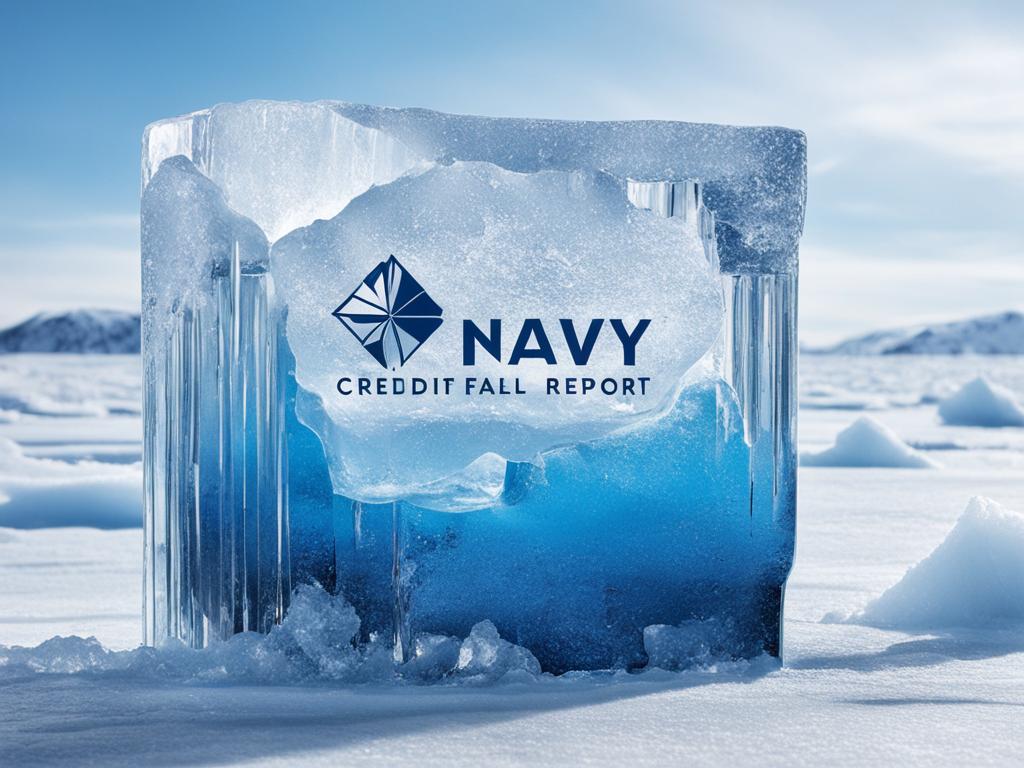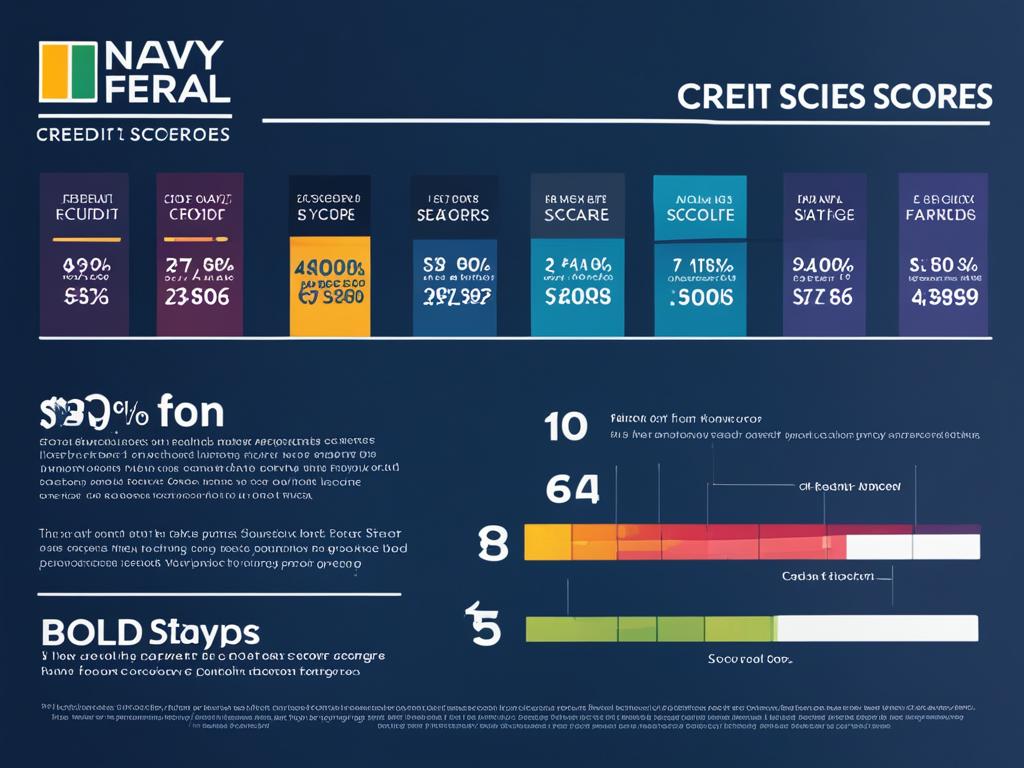Navy Federal Credit Union Credit Bureau Choice Explained
When applying for a credit card with Navy Federal Credit Union, it’s crucial to understand their credit bureau choices and how they impact your application process. In this article, we will explain Navy Federal’s unique approach to selecting credit bureaus for credit reviews, including their primary choice, TransUnion, and the possible influence that Equifax and Experian might have on your application.
As a Navy Federal member planning to apply for a credit card or line of credit with the organization, it’s essential to learn which credit bureaus are usually consulted and prepare your credit report for Navy Federal. This will ultimately help you understand the role of your Navy Federal credit score in your application, giving you a better chance at approval.
Key Takeaways
- Navy Federal Credit Union primarily uses TransUnion when assessing credit card applications.
- However, they maintain their right to request credit reports from any of the three major credit bureaus: Equifax, TransUnion, and Experian.
- Applicants should unfreeze all credit reports to ensure a smooth application process with Navy Federal.
- It’s essential to have accurate, updated credit reports to increase your chances of approval for Navy Federal credit products.
- Keep a healthy credit profile and stay informed about Navy Federal’s credit bureau choices to maximize your membership benefits.
Understanding Navy Federal’s Credit Bureau Reporting
When applying for credit products at Navy Federal Credit Union, it is essential to be aware of the credit bureaus they use and the impact that credit reporting might have on your credit score. This understanding can aid in making informed decisions and better preparing for the credit application process.
Which Credit Bureaus Does Navy Federal Use?
Primarily, Navy Federal conducts credit inquiries through TransUnion. However, they also hold the liberty to utilize Equifax and Experian if necessary. Given the consistency of information across the three credit bureaus, negative entries found on one report are generally reflected in the others. Thus, ensuring the accuracy of all your credit reports is crucial.
The Impact of Credit Bureau Reporting on Your Score
When you apply for a Navy Federal credit card, expect a hard inquiry on your credit report. Though this may result in a temporary reduction in your credit score, it is a standard practice for assessing creditworthiness. To mitigate any adverse effects on your score, address any inaccuracies on your credit reports promptly by placing disputes. Furthermore, take advantage of available online platforms that allow you to check and monitor your credit scores for free regularly.
How Navy Federal’s Credit Bureau Choice Affects Your Application
The credit bureaus used by Navy Federal Credit Union can play a crucial role in the outcome of your credit application. When assessing your creditworthiness, Navy Federal typically retrieves your credit report from TransUnion, but it’s worth noting that they may also acquire reports from Equifax and Experian. Consequently, it’s essential to make sure all your credit profiles are accurate and up-to-date before submitting your application.
You should unfreeze all credit reports from the major credit bureaus before submitting an application to Navy Federal, as discrepancies on one report can indicate similar issues on others.

To ensure the best chance of approval when applying for a credit product with Navy Federal, it’s imperative that you do the following:
- Review your credit reports from all three major credit bureaus: Equifax, TransUnion, and Experian.
- Unfreeze each credit report, as doing so will allow Navy Federal to access your credit information.
- Rectify any errors or inaccuracies on your credit reports by disputing them with the respective credit bureaus.
By thoroughly examining your credit reports and addressing any inconsistencies, you can significantly improve your chances of obtaining approval for a Navy Federal credit product.
What Credit Bureau Does Navy Federal Use for Credit Decisions
While Navy Federal primarily relies on TransUnion for credit card applications, it may also refer to Experian and Equifax. Despite the three credit bureaus receiving near-identical information, some minor differences could affect lending decisions. To improve your chances of approval, it is crucial to understand the distinctions among Equifax, TransUnion, and Experian reports and implement a strategy for approaching credit applications with Navy Federal.
Differences Among Equifax, TransUnion, and Experian Reports
Equifax, TransUnion, and Experian are the three major US credit bureaus, each generating their credit reports based on the information they receive from lenders and creditors. Although these reports are generally consistent across all bureaus, subtle variations may emerge due to reporting timeframes, the information they collect, and the scoring models they employ.
- Reporting Timeframes: Creditors may report customer data to each bureau at different times, causing variations in credit scores.
- Collected Information: Not all creditors report to all bureaus, leading to slight discrepancies in the reports.
- Scoring Models: Each credit bureau uses distinct scoring models (FICO and VantageScore) to calculate credit ratings, resulting in possible score differences.
Strategy for Approaching Credit Applications with Navy Federal
Since Navy Federal could pull credit reports from any of the three bureaus—Equifax, TransUnion, or Experian—it is vital to have a coherent strategy when submitting your applications. Consider the following steps:
- Check all three credit reports: Obtain copies of your credit reports from Equifax, TransUnion, and Experian and review them carefully for accuracy.
- Identify discrepancies and inaccuracies: In case of any errors or inconsistencies, file disputes with the respective credit bureau to have them corrected.
- Unfreeze credit reports: Provide access to your credit reports by ensuring they are unfrozen before applying for credit at Navy Federal.
In summary, staying informed about the credit bureaus used by Navy Federal and adopting a practical strategy for credit applications is crucial to increase your likelihood of approval. Always ensure your credit reports are accurate, up-to-date, and accessible to Navy Federal for a seamless evaluation process.
Navy Federal Credit Score Requirements for Approval
Meeting the Navy Federal credit score requirements is essential for the approval of credit cards and other financial products. Generally, a minimum credit score of 700, which represents good credit, is required for most Navy Federal credit cards. However, some products may necessitate excellent credit scores as high as 750. Fortunately, NFCU also caters to individuals with poor credit histories through specific offerings.

Understanding the Role of Your Credit Score in Credit Card Approval
Your credit score plays a vital role in determining the outcome of your Navy Federal credit card application. A good to excellent credit score increases your chances of approval and demonstrates your creditworthiness to the credit union. In contrast, a low credit score may limit your options and affect your ability to obtain favorable rates and terms.
Tips to Increase Your Chances of Navy Federal Credit Approval
To bolster your chances of securing a Navy Federal credit card or loan, it is crucial to understand how to improve your approval odds. Below are a few tips that can help maximize your chances:
- Opt for the right card: Choose a credit card that aligns with your credit score range. NFCU offers products catering to various credit profiles, including secured cards like the Navy Federal nRewards Secured Credit Card for those with lower credit ratings.
- Improve your credit score: Consistently monitor and work on improving your credit score by paying bills on time, maintaining low credit utilization, and addressing any inaccuracies on your credit report.
- Time your applications wisely: To further enhance your approval chances, allow a gap of at least three months between credit limit increase requests, giving your credit score time to recover from any temporary dips resulting from hard inquiries.
- Reduce debt: Lowering your overall debt and minimizing credit card balances can positively impact your debt-to-income ratio, thus boosting your credit score and approval chances.
By adhering to these tips for credit approval and understanding the Navy Federal credit score requirements, you are better equipped to enhance your chances of success with your NFCU credit card or loan applications.
Conclusion
As a member of Navy Federal Credit Union, enjoying the membership benefits and accessing a wide range of financial products largely depends on understanding the credit bureau’s procedures and maintaining a healthy credit profile. Optimizing your NFCU experience involves critical aspects such as staying well-informed about NFCU’s credit bureau preferences and keeping your credit reports accurate and prepared for potential checks during your membership.
Maximizing Your Membership with Navy Federal Credit Union
To make the most out of your credit union membership, it’s essential to proactively nurture your credit score and maintain an unfrozen, up-to-date credit report. By taking these steps, you’ll be better positioned to access various financial services, such as loans, credit cards, and other tailored solutions offered by Navy Federal Credit Union. Being informed about your credit status ensures you make the right decisions when applying for credit products and services.
Staying Informed and Prepared for Credit Bureau Checks
Remaining prepared for credit bureau checks is a crucial aspect of managing your finances as a Navy Federal Credit Union member. By closely monitoring your credit reports from Equifax, TransUnion, and Experian, you can quickly identify and address inaccuracies and discrepancies to improve your overall creditworthiness. Embracing these practices will help you make the best use of available opportunities and keep you ready to act when new services become accessible or when it’s time to apply for additional credit products at NFCU.
FAQ
Which credit bureaus does Navy Federal Credit Union use?
Navy Federal Credit Union predominantly uses TransUnion but may also use Equifax and Experian when assessing credit card applications.
How can I ensure the best chance of approval when applying for a Navy Federal credit card?
Make sure all your credit reports are unfrozen and accurate, and maintain a healthy credit score before applying for a Navy Federal credit card.
What is the minimum credit score required for Navy Federal credit card approval?
A minimum credit score of 700 is typically required for Navy Federal credit card approval, while some products may require scores as high as 750.
Are there any credit cards available for individuals with lower credit scores at Navy Federal?
Yes, the Navy Federal nRewards Secured Credit Card is an option available for those with lower credit scores, as it requires a minimum deposit that becomes your credit limit and reports to the credit bureaus to help improve your credit.
How often should I request a credit limit increase with Navy Federal?
To improve your chances of approval for other cards, it is advisable to maintain a gap of at least three months between credit limit increase requests.

